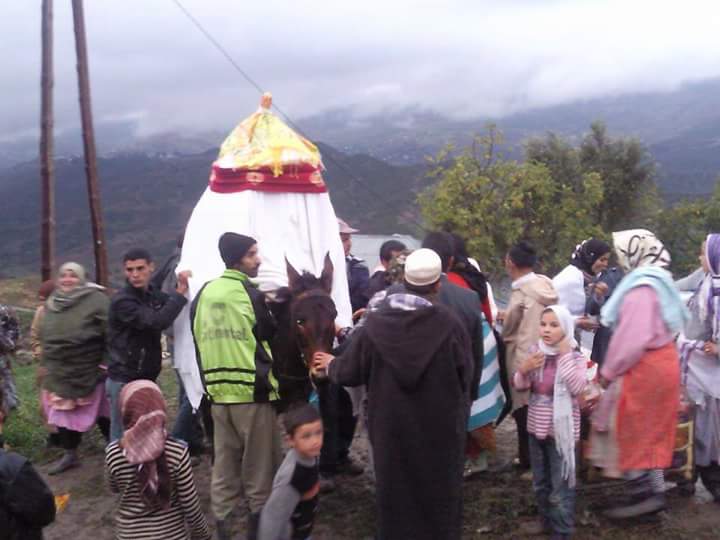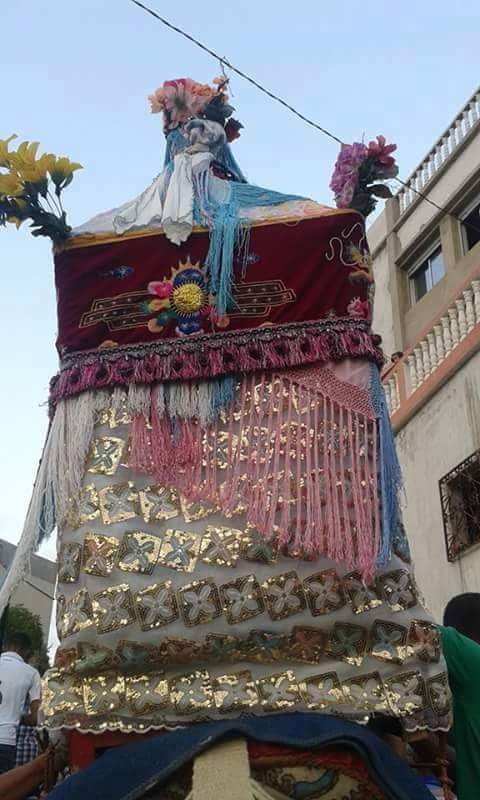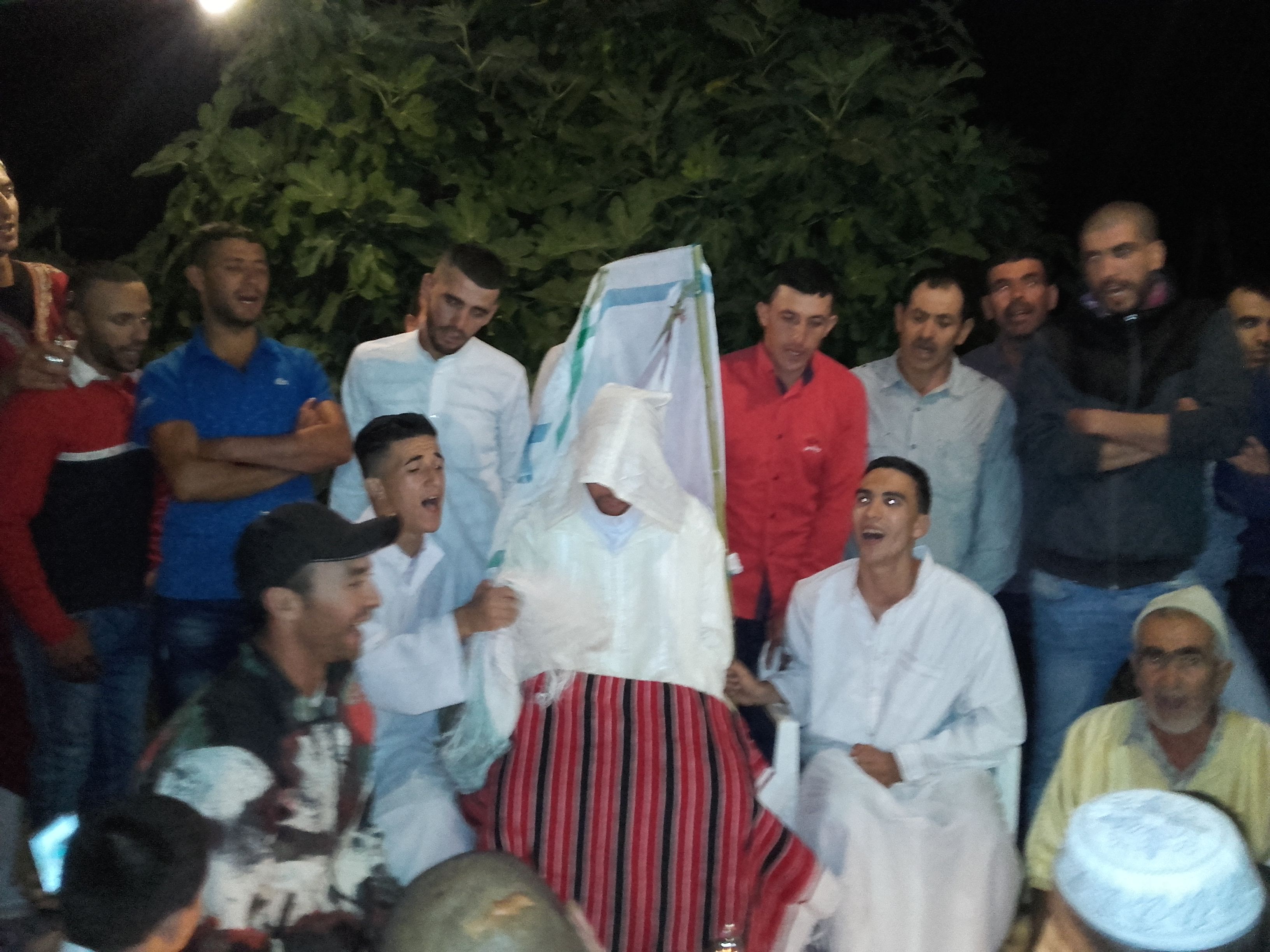Marriage ceremonies in northern Morocco .. Sticking to the original customs and traditions of the community



The ceremony of marriage in northern Morocco is a festive social event that reflects the attachment of the people of the region to the original customs and traditions of the community that reduce the values of civilized heritage.
Despite the emergence of new forms of celebration developed with the development of means, possibilities and customs in society, which affected the various aspects of life, the wedding traditions still store the social, cultural, civilizational and religious heritage and style and lifestyle of the region's static despite the different potential of the groom and bride and the emergence of new requirements.
Heritage and Archeology
Marriage ceremonies in northern Morocco .. Sticking to the original customs and traditions of the community
Mustafa Ismaili 3 years ago
AHDATH.INFO - p
The ceremony of marriage in northern Morocco is a festive social event that reflects the attachment of the people of the region to the original customs and traditions of the community that reduce the values of civilized heritage.
Despite the emergence of new forms of celebration developed with the development of means, potentials and customs in society, which affected the various aspects of life, the wedding traditions still store the social, cultural, cultural and religious heritage and style and lifestyle of the region's static despite the different potential of the groom and bride and the emergence of new demands of the times.
The wedding, which takes place for many months, lasts four days, despite the slight differences between the customs of the cities of northern Morocco and its poles. The first day of the wedding ceremony is dedicated to henna engraving for the bride (the nibatah ceremony) ), And the third day attended by men as well as women in different halls (Al-Boja ceremony), and the fourth day of a women's party in the house of the groom's family is also special for women.
The first day of the wedding ceremony begins with the invitation of the bride to her unmarried friends to go in a private procession to a bathroom that is rented specifically for this tradition in order to prepare the celebration. Before the evening of the bride's family, the henna ceremony is organized to bid farewell to the world of celibacy, Unmarried women and the woman to engrave the hand and man of the bride henna, and wearing the bride by the way white clothes and drop from her head a transparent cover without decorating other things additional, while repeating the old songs to ease the difficulty of separation of the bride to her family, and sent verbal messages to remind her responsibility after To marry and the need to care for her husband and her children.
The day of the "Nabateh" is followed by the ceremony of "The Appearing", in which the bride stands out with all the splendor and freshness of the bride under the supervision of a specialized woman. The bride is accompanied by the bridegroom, who also wears a traditional dress, a gift from the future wife, a white gilt of "Alsosdi" or "Vergia" and T-shirt embroidered with "Randa" and above "Bada'iyah" and "Jbadur" and "Arab Shorts" Attran smell "musk", sitting in a prominent position at the end of the ceremony accompanied by Madawat voices Takbeer and prayer on the ring and joy and links from the Andalusian music of the Prophet.
The groom's family offers a variety of gifts and precious gifts, as well as roses, according to their abilities and material abilities. The bride's wedding ceremony will end on the second day in preparation for the next day of the celebration.
On the third day, the day of the "Bouja", two ceremonies are usually held in two different places, the first for the bride's family and the second for the groom's family, attended by relatives, friends and acquaintances at a special invitation, while the inhabitants of the neighboring villages attend the Badia weddings without a prior invitation loaded with foodstuffs and ready foods in solidarity with The two parties are active in different bands, including the specialist in modern or Andalusian music, folklore and folkloric groups, as well as presenting traditional sweets that are enjoyed by the women of the North, as well as organizing a varied dinner.
The ceremony is followed by a symbolic moment in which the feelings of joy and sadness of separation are mixed, after the bridegroom sends his family, relatives and relatives to bring the bride on a "puja," a wooden hodg covered with exquisite traditional fabrics and dresses, usually carried by family members. Where the verses of the Quran are read aloud and the voices of the magnificence are heard, accompanied by traditional traditional and folkloric hoops to the bridegroom's house, where the groom is offered milk and fruit as an expression of welcome, and the bride is usually given an old key symbolizing goodness and blessing.
👍
Good i like it
I really like your posts
Thanks
good
good
great post thank's for share it with us